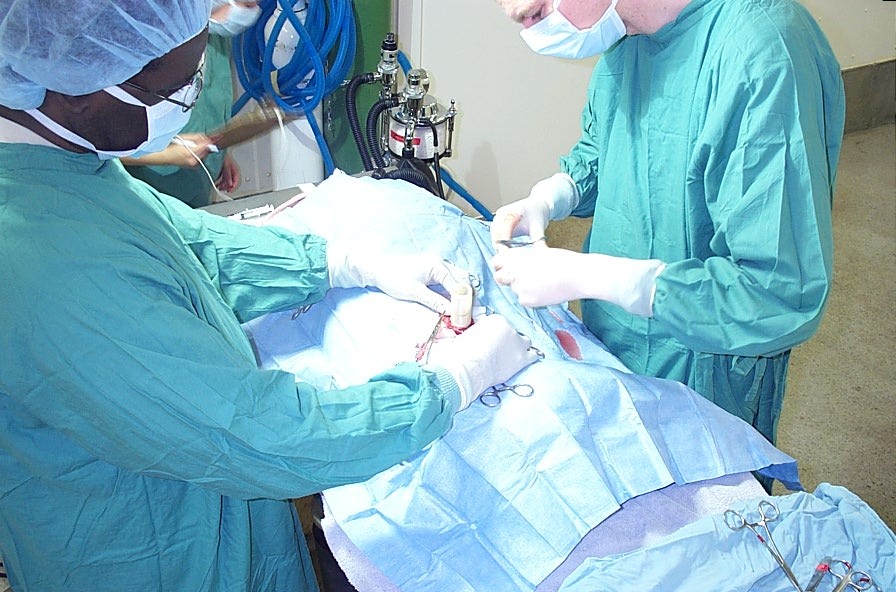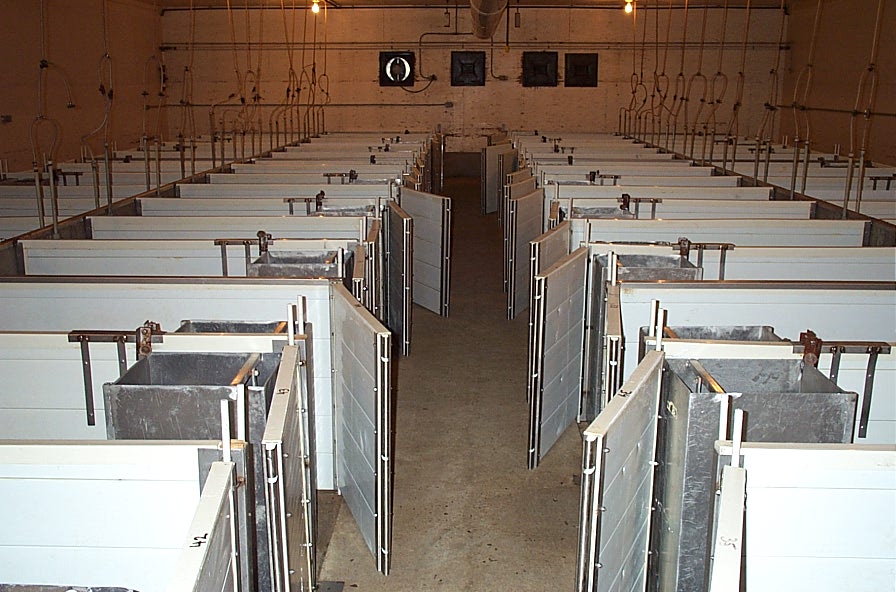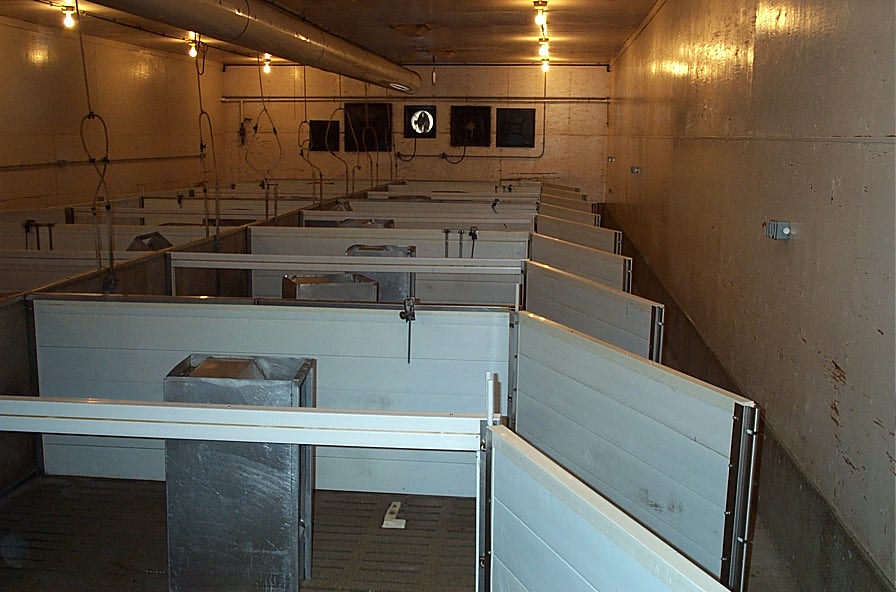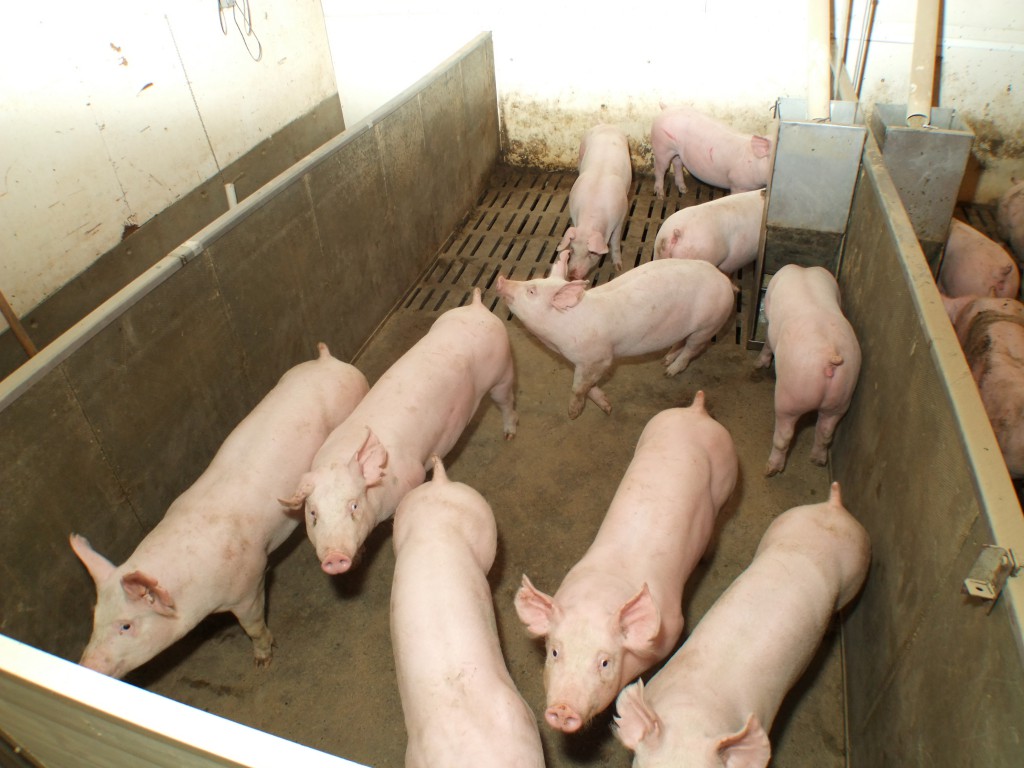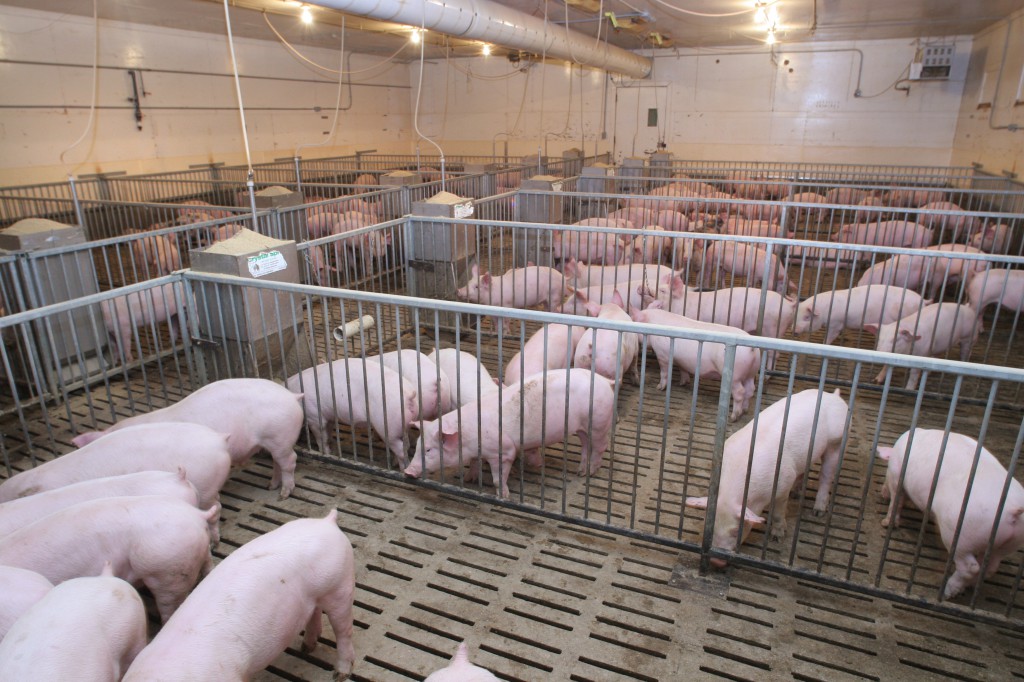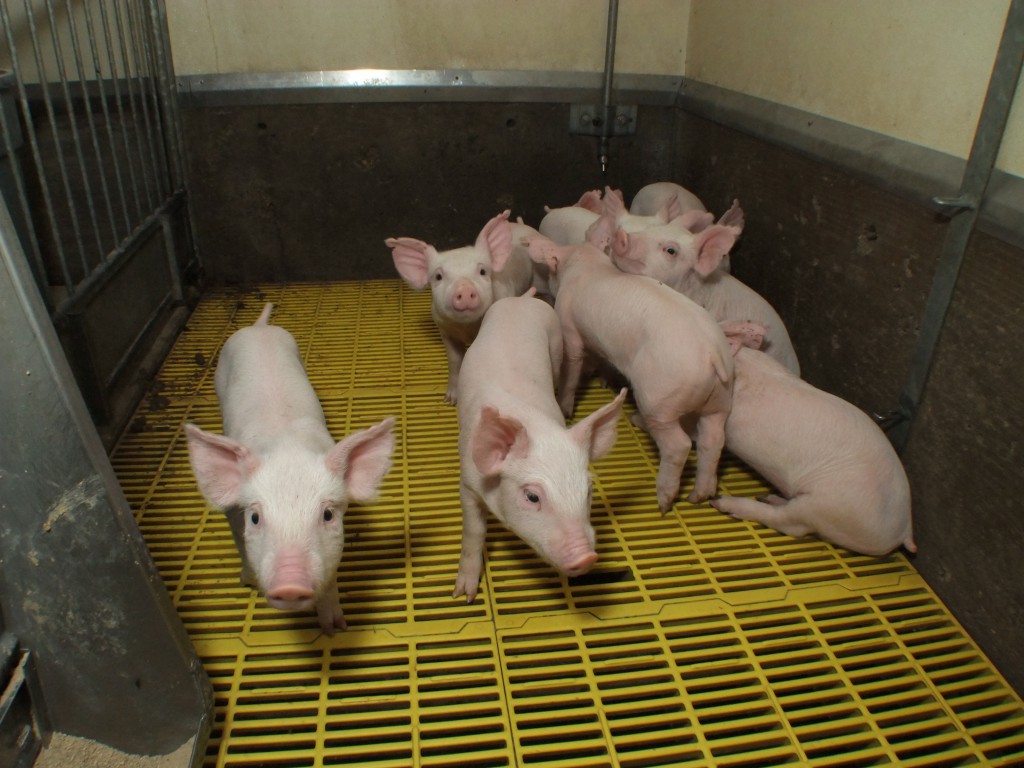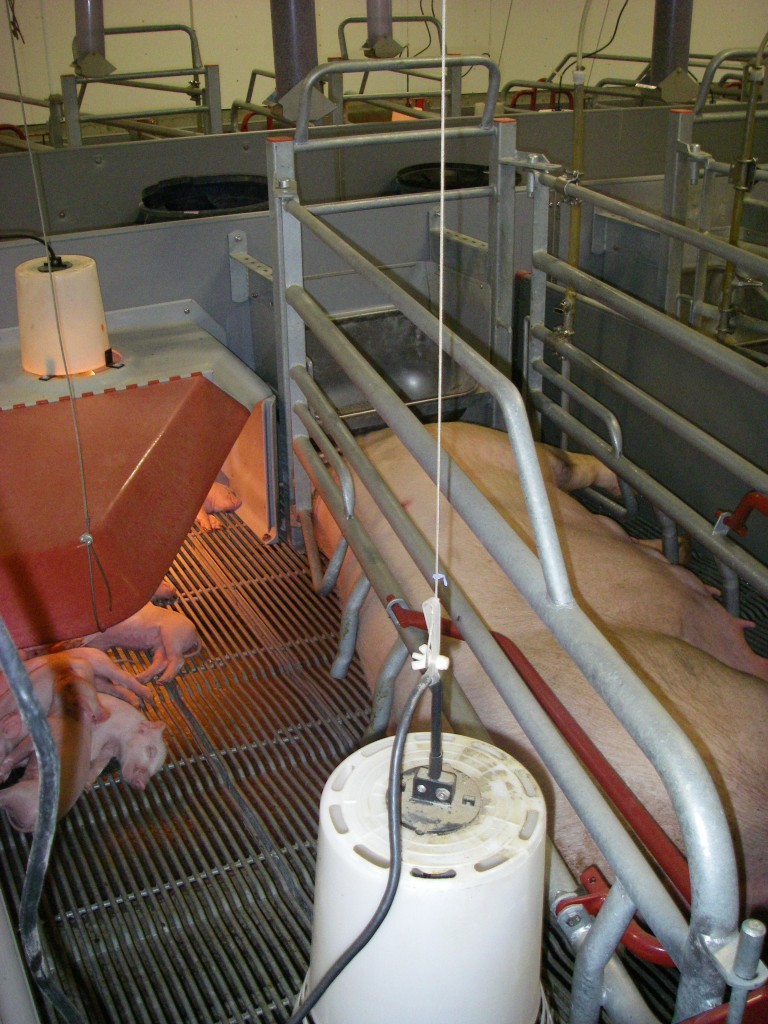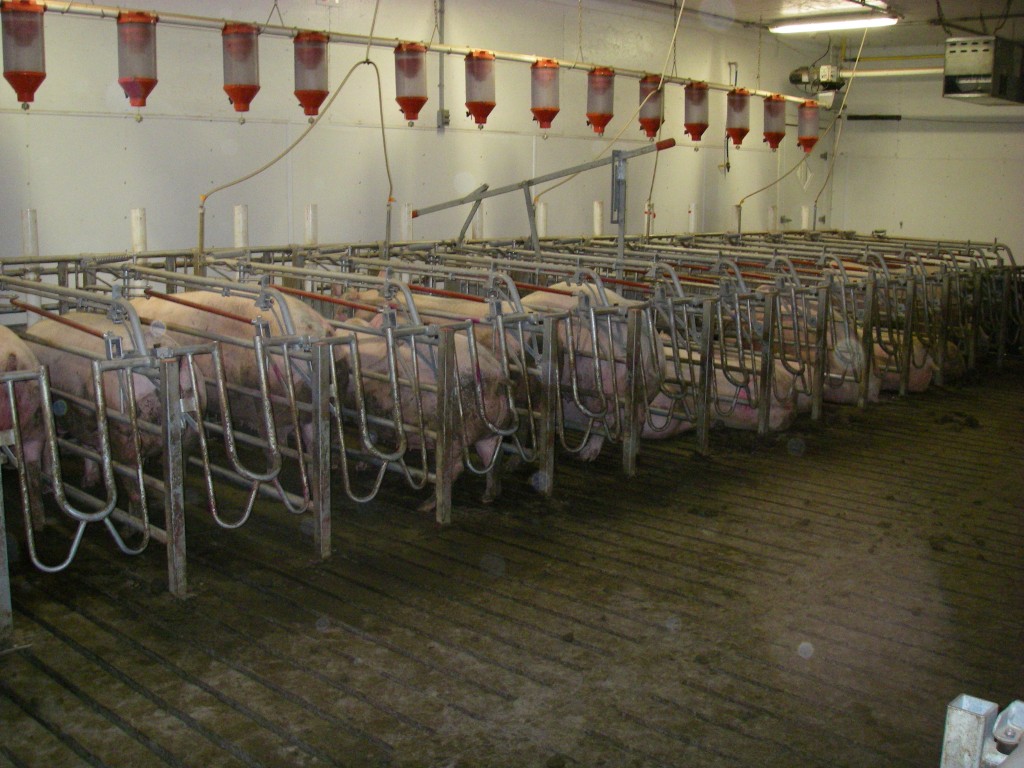Facilities for Basic Research
The fully equipped surgery room is used to prepare animals for a variety of studies, from changes in blood profiles to monitoring the digestion of various feedstuffs. Associated with the surgery room are the Preparation and Recovery rooms. There are two small Experimental Rooms, located near the surgery room. These rooms are shells, with independent heating and ventilation that are adaptable to a wide array of research using sows, piglets, or growing pigs. The rooms measure 6.4m x 6.4m and can be fitted with penning to suit the needs of particular studies. Two Metabolic Rooms can accommodate up to 20 metabolism crates each.
Grower-Finisher Facilities
- 1,672 spaces
- 2 metabolism rooms with 20 crates per room
- 2 intensive rooms, with 76 individual pens/room
- 8 semi-intensive rooms, with 20 pens (5 pigs/pen) per room
- 6 commercial rooms, with 6 pens (12 pigs/pen) per room
- 2 engineering rooms, with 14 pens (12 pigs/pen) per room
Intensive Facilities
Two Intensive Rooms can each house 76 grower/finisher pigs in fully slatted, individual pens. Each room measures 19.8m x 7m and has 4 rows of 19 pens. The rooms are equipped with nipple drinkers and single space feeders.
Semi-Intensive Facilities
There are eight Semi-intensive Rooms that can each house 5 pigs/pen with 20 pens/room for pigs from 8 weeks of age to market.
Commercial Facilities
There are six Commercial Rooms that can each house 144 grower/finisher pigs per production cycle. Each room measures 14.3m by 10.7m and contains 6 pens, each capable of holding 12 pigs. The rooms have partially slatted floors and are equipped with nipple drinkers and automatic feeders.
Engineering Facilities
There are two Engineering Rooms that measure 14.3m x 11m each and have fully slatted floors throughout. The rooms are equipped with nipple drinkers and automatic feeders and the spindle penning can be easily moved for frequent changes in pen size, shape and location. There are nine fully independent manure channels within the rooms that allow for a variety of studies on manure storage, treatment and composition.
Nursery
There are six identical Nursery all-in-all-out rooms. Each room has 12 pens available for research, capable of holding 10 pigs/pen, for a total of 120 pigs. The 12 pens can be easily split into 24 pens, which will hold 4 pigs/pen enabling different research requirements to be accommodated.
Sow Barn
Opened June 2008
The Sow Research Unit houses a 300 sow herd. Opened in July 2008, The 126′ x 203′ barn includes breeding, gestation, farrowing, gilt development, lab facilities and a small office.
The Sow Research Unit has five farrowing rooms to accommodate a shift to four week weaning. When the industry was surveyed prior to designing the new barn in Spring 2007 the suggestions to go to four week weaning came from many producers.
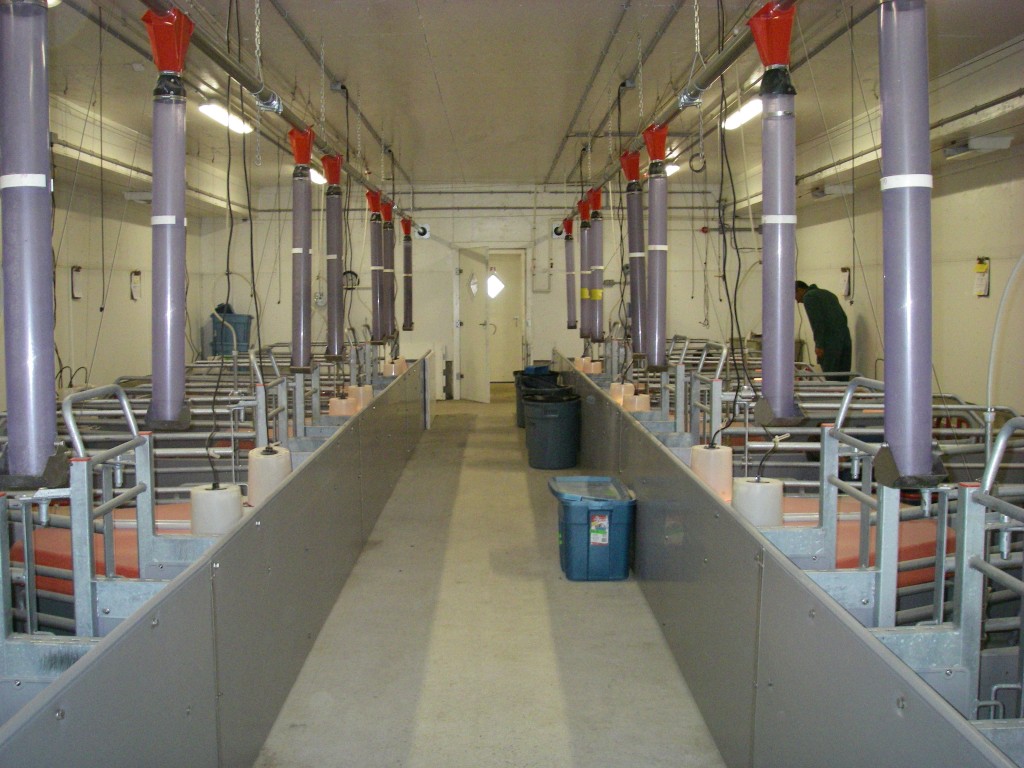
Free access stalls allow sows the option to seek protection of a stall or choose to be part of the group. Two rows of 16 stalls (2 weeks breeding) share the 10′ x 35′ slatted area between the rows.
Specifications: 80″ long x 26″ wide
Other Facilities
A pre-mix room allows for the storage of special ingredients and experimental substances and the preparation of pre-mixes for experimental diets. An on-site shop facilitates some manufacturing for projects. The Centre also maintains simple laboratory facilities in both the Barn and Main Office buildings. The use of the facilities is restricted to sample handling and some limited assays. More specialized lab facilities and equipment are available at the University of Saskatchewan campus.
Off-Site
Other research facilities available via Prairie Swine Centre, Inc:
Commercial sites adapted to research (past studies have included disease challenge, immunization, etc)
- Auto-sort large group for grower-finisher
- Commercial-sized disease challenge grower-finisher
- Commercial-sized nursery 500-2000 head
Biosafety Level 2
Available for nursery, grower-finisher, and sows. Is a place to do work with infectious agents that can cause human or animal disease but under normal circumstances are unlikely to be a serious hazard to lab workers, livestock, or the environment (ex. TGE, many salmonella)
Biosafety Level 3
Opening in February 2011. Is a place to do work with infectious agents that are pathogens that usually cause serious human or animal disease, or which can result in serious economic consequences, but do not ordinarily spread by casual contact (ex. anthrax, tuberculosis)










